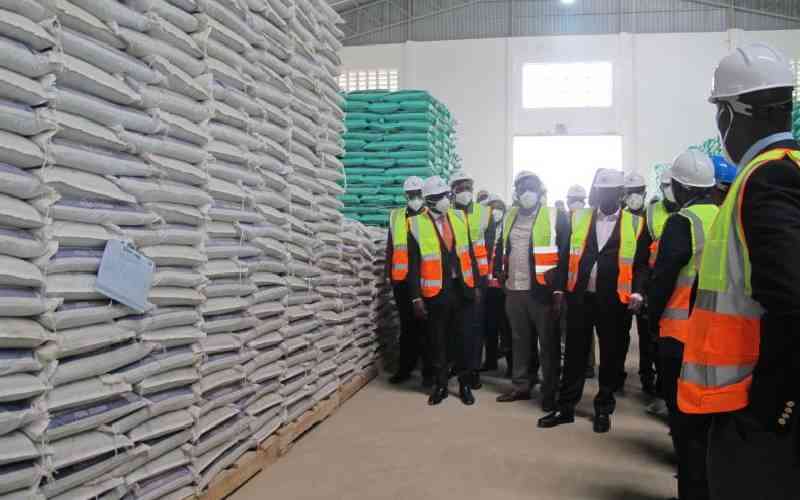By SILAH KOSKEI
Uasin Gishu County has partnered with Toyota Japan to establish a Sh2.6 billion fertiliser plant in Eldoret.
The factory, which is expected to be completed in 2016, will pioneer manufacturing of Nitrogen Potassium phosphate (NPK) fertiliser in the region.
Speaking in Eldoret, a Toyota Japan official Shinha Tshusho expressed optimism that establishment of the plant in the agriculture-rich region will help boost productivity. He said they settled on the North Rift region — where there is also high demand for fertliser — as the ideal location for the factory after an extensive feasibility study.
“We agreed to establish it in Eldoret because of its favourable environment and a ready market,” he said.
Tshusho also said availability of water and electricity as well as accessibility to a railway line are some of the other factors that influenced their choice of Eldoret as the site for the project.
Uasin Gishu Governor Jackson Mandago welcomed the plan to put up the fertiliser plant in the North Rift.
He promised that they would work around the clock to ensure there is land for establishment of the plant.
Soil PH
“We have a timeline of two months to ensure that we find viable land for the investment. Currently we are weighing our options between a plot in Leseru and another one located next to Unga Limited,” he said, adding that the factory will also create jobs for the youth.
He said use of NPK will help check the acidity of the soil in the region.
County executive committee member in charge of Trade, Tourism and Industry Phillip Meli said the partnership with Toyota company is among the many projects the government has lined up to boost the region’s economy.
He said the project was part of a strategy to ensure farmers access affordable inputs to make their agricultural ventures profitable.
“The proposed plant is also the first in Kenya and the biggest in East Africa region. Our work will be to ensure that we expedite the award of the licence for their smooth operation,” he added.
The plan comes against a backdrop of a report released by President Uhuru Kenyatta indicating that the soil in North Rift is highly acidic and unsuitable for maize production.
Stay informed. Subscribe to our newsletter
Farmers in the region have since been advised against using DAP as part of efforts to reduce the acidity levels.
 The Standard Group Plc is a
multi-media organization with investments in media platforms spanning newspaper
print operations, television, radio broadcasting, digital and online services. The
Standard Group is recognized as a leading multi-media house in Kenya with a key
influence in matters of national and international interest.
The Standard Group Plc is a
multi-media organization with investments in media platforms spanning newspaper
print operations, television, radio broadcasting, digital and online services. The
Standard Group is recognized as a leading multi-media house in Kenya with a key
influence in matters of national and international interest.
 The Standard Group Plc is a
multi-media organization with investments in media platforms spanning newspaper
print operations, television, radio broadcasting, digital and online services. The
Standard Group is recognized as a leading multi-media house in Kenya with a key
influence in matters of national and international interest.
The Standard Group Plc is a
multi-media organization with investments in media platforms spanning newspaper
print operations, television, radio broadcasting, digital and online services. The
Standard Group is recognized as a leading multi-media house in Kenya with a key
influence in matters of national and international interest.






